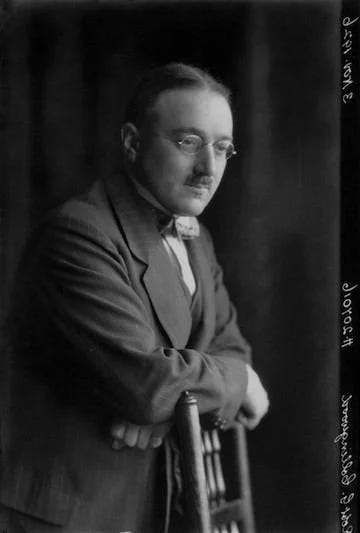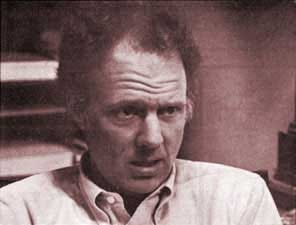Who Has Read More Books
than are held in the NYPL or the Library of Congress!?
Slight exaggeration. I’ve read a lot of books. I own a lot of books. I’ve hauled a lot of boxes of books all over the country. Yes, I do Kindle, too — not enough.
I have never known such a prolific reader — mostly of exactly the same kinds of books I read myself, and I have fairly quirky tastes(!) — who has not only read but prolifically documented his reading, consistently, for 15 years. He’s a big fan of Arendt, like me, and has described his college infatuation as an intellectual crush. Her work sits comfortably next to Collingwood and William Ophuls (otherwise unknown to me) in his personal canon.
Today’s featured Substack is Taking Readings, lovingly tended by my new online friend Stephen Greenleaf. His posts go back — on Substack — to 2009. Here’s the first I found. Since Substack was launched in 2017, that means more than eight years’ worth of readings taken were imported.
Stephen posts quotes and comments from his reading of whole, substantive books, with some help from Readwise, along with essay length book reviews and insightful cross-linking between big ideas woven across not only canonical literary and philosophical works but also through authoritative reports written by well-placed observers of current affairs. His professional background is the practice of law, but he covers political thought, history, philosophy, economics, climate, and even literature and movie reviews. He’s lived all over the world, giving him a unique and wide-ranging perspective.
Here’s his latest post, from earlier today, featuring (as promised) Arendt and a secondary work on R. G. Collingwood, the mid-20th c. philosopher of history.
Stephen reads not only books, in great quantity and depth, but also other Substack publications, and comments insightfully. He offered a thoughtful response to a pose-ponder challenge I posted recently on J. Michael Wahlen’s inaugural post, “The Value of History,” at Byte-Sized History. I want to spend a little time responding to Stephen’s comments — and invite others to reply below and keep the conversation going.
Here’s my challenge:
Worth a long ponder. I would like for history to tell me about human nature and good and bad (#4). Realistically it’s the details, consciousnessness raising re: risk, and vocabulary (#1, 2, 3) that prompt me to read. Must one reject the possibility of “transcendence”? History won’t get you there, to be sure. But you won’t get there without it, either.
Yet a further question: do we even want it? Transcendence, I mean. Posed.
Source: my restack of “The Value of History”
J. Michael’s original article weighs his reasons for writing Byte-Sized History, questioning at the outset whether history has any lessons to offer. Hovering over the query is the further debate over whether history is “just the facts, ma’am” (or as some have put it, a mere accounting of “one damn thing after the other”) or whether there is something “transcendent” about it, whether there are in fact Lessons to be learned.
It turns out that, by itself, history probably doesn’t get you anywhere so transcendent — and yet, on the other hand, you probably cannot get to any such vaunted place without it, either.
But we should not be so extreme as to claim that learning of the past provides no insights beyond the events described. I see it as a ‘higher pleasure,’ having a value that transcends the knowledge of the events themselves. To be precise, there are four “lessons” I take from history.
Source: J. Michael Whalen, “The Value of History”
I agree whole-heartedly about the value of history to provide details, risk assessment, and a vocabulary (three of the four lessons). I thought I would like for history to provide some lessons regarding “human nature,” but I was a little hesitant.
Stephen accepted the pose-ponder challenge and went miles deeper, drawing in Arendt, Collingwood, Lukacs, and Kierkegaard! This is what you can do when you’re this widely read, with your sources properly documented. I’m a bit in awe.
You can read Stephen’s five main points, and link through to the sources from his comment. He doubts the reality of any such thing as “human nature,” recognizes patterns in history (as habits, trends — not laws), offers two insights on the possible meanings of “transcendence,” and wraps up with Lukacs and especially Kierkegaard’s famous quip that:
“We live forward; but we can only think backward.”
Thinking, in other words, works only upon the grist of history to feed the mill. But there’s no going back for us. We live and act only into the future.
Reading is like that, too. Everything you read has been written by other thinkers who came before you, if only by a few minutes or days. You take what they give and live it forward in your own thought, your own writing, your own life.
I can suggest few better reading companions along the way, or inspirations to keep your own digital commonplace book. Do give Taking Readings a look and a subscribe. Pull out your Kindle, or make room on your bookshelf, and prepare to be deeply enriched.





Tracy,
Thank you very much for your very kind words. I'm deeply flattered and appreciative of your compliments. You've raised the bar for me; now I'll have to leap higher to clear the level set by your compliments!
I must admit that I inadvertently imported all of my old Blogger posts into Substack, and some of them are better left in oblivion. But it's pleasant to return to see some items that I hope have passed the test of time. I should also note that one of the advantages that I'm finding on Substack is the development of a community of users, much more so than with Blogger. And like you, I'm delighted to find others--like you--who share some of my enthusiasms and who are wiling to engage the ideas shared among readers and writers on Substack. I find this willingness to engage stimulating and inspiring, and, worthwhile.